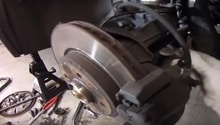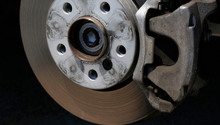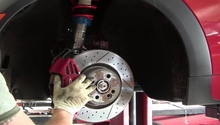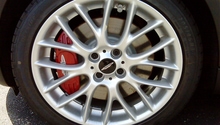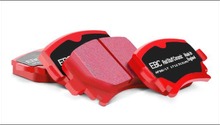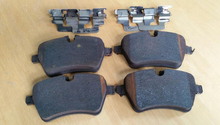Mini Cooper: Brake Problems Diagnostic Guide
The brake system is the most important system when it comes to your safety. Learn how to diagnose your Mini Cooper's brake system below.
This article applies to the Mini Cooper and Mini Cooper-S (2001-present).
The brake system on your Mini Cooper should always be working at its best. If you ever feel a change in the brake pedal or stopping power, or even strange noises when braking, the problem should be diagnosed immediately. It's not recommended or safe to drive around while having brake issues in your car. Most brake issues can be diagnosed and even fixed by people with little mechanical experience. If you experience any brake issues, take a moment to read the guide below to get some help figuring out the culprit in your Mini Cooper's brake system.

Materials Needed
- Flashlight
- Jack and jack stands
- Tire iron
- Socket
- Brake fluid (optional)
Step 1 – Check the brake fluid reservoir and brake hoses
It could be low; They could be leaking.
The brake fluid reservoir can tell you a lot about your brake system. For instance, if your brake fluid is low, then you could have a brake leak. Check all the brake hoses using your flashlight; if you see any leaks, you have to replace the hose immediately, then refill and bleed the brakes. Any brake leak will introduce air into the pressurized brake system, which can lead to a spongy brake pedal. Having air in the brake system sacrifices its stopping power, so don't drive around until you fix the leak and bleed the brakes from any air.
[Related Article - How to Bleed Brakes - NorthAmericanMotoring.com]
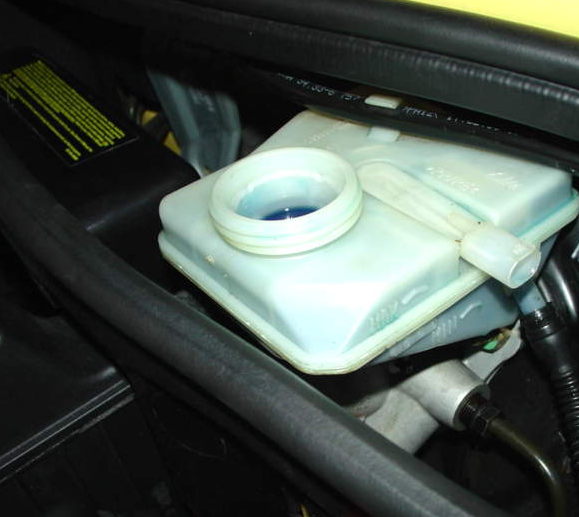
If the brake fluid is at an appropriate level, proceed to Step 2.
Step 2 – Check the brake pads
They could be worn down.
Brake pads aren't meant to last forever. In fact, depending on your driving, the average brake pads last around 30-50,000 miles. After the brake pads get too thin and worn, they start wearing out your brake rotors, which is an expensive fix. Worn brake pads will be accompanied by squealing noises when you step on the brake pedal, and you won't be getting a great grip on the rotors, which means braking power is diminished.
To check the brake pads, jack up the car at the appropriate jacking point, which is behind the front wheels or in front of the rear wheels. Remove the wheel, then use your socket to remove the brake caliper. Check the brake pads' friction material; the minimum thickness you can legally have is 3mm, and anything thinner than that is a hazard. If you can barely see the friction material and just see the backing plate, you're overdue for replacements.
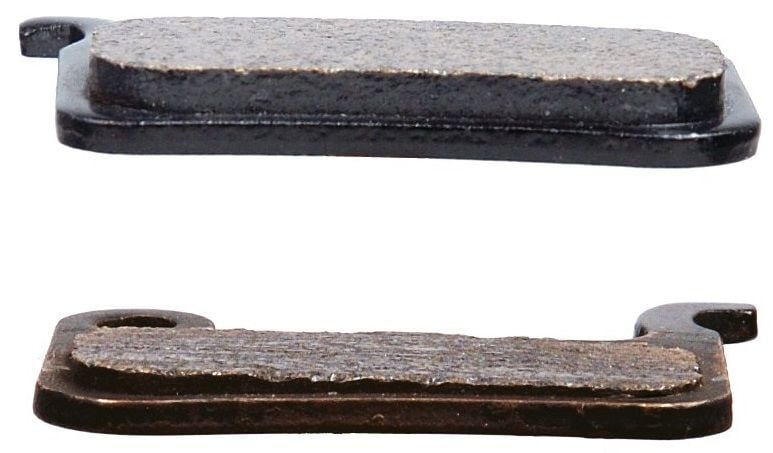
If the brake pads are in good shape, proceed to Step 3.
Step 3 – Check the brake rotors
One or more could be worn, grooved, or cracked.
The brake rotors should be changed every second brake pad cycle. However, if you wait too long to replace your brake pads, you may have grooved your brake rotor, which can cause grinding noises when you step on the brake pedal.
With the questionable wheel removed, check the brake rotor for any grooves, cracks, or anything that could be altering the braking procedure. The general rule of thumb is that if the "lip" of the rotor catches your thumb, it's time to replace the rotors. Replacing the brake rotor is a simple procedure. It only requires you remove one screw after the caliper has been removed, but it can be costly, with rotors costing up to $100 each for OEM replacements.
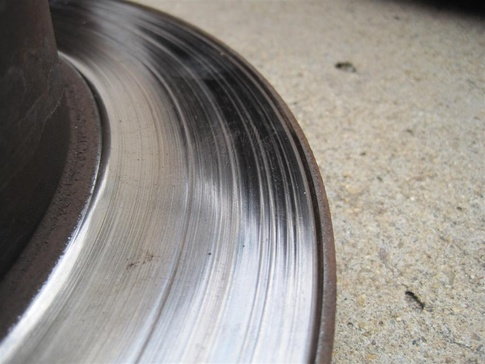
If the brake rotors are in good shape, proceed to Step 4.
Step 4 – Check the brake calipers
The pistons could be sticking.
The brake calipers aren't known to need replacement; however, they could go bad. The most common issue with brake calipers is stuck pistons. Sometimes the brake caliper's piston gets stuck and fails to decompress, which forces the brake pads to constantly rub on the brake rotor. This is the fastest way to wear out your brake pads and rotors. This could be accompanied by a burning smell and squealing noise, most likely both. Don't drive your car in this condition, or you'll end up having to replace your caliper, pads, and rotor. Additionally, the caliper pistons are surrounded by rubber seals. If these seals degrade too far, they could cause internal damage and begin leaking brake fluid, which is equally bad.
Replacing the caliper is a simple swap of the brake line; however, you need to bleed the system after from any air.
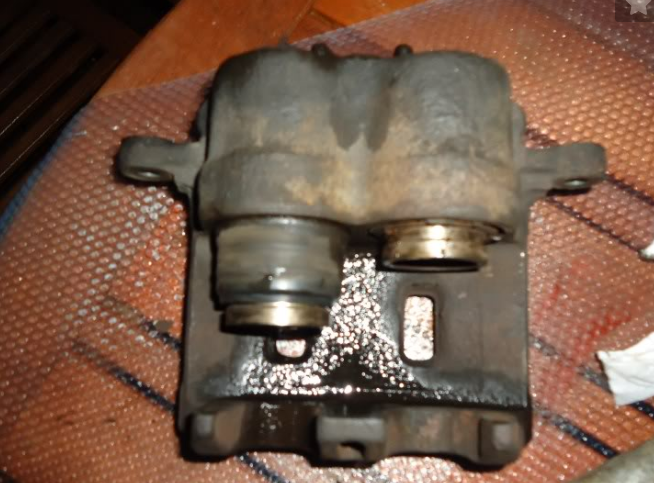
Related Discussions
- Brake Pad Issues - NorthAmericanMotoring.com
- Emergency Brakes - NorthAmericanMotoring.com
- Braking and Steering Issue - NorthAmericanMotoring.com
- Brake Squealing - NorthAmericanMotoring.com
- Possible Brake Booster Issue - NorthAmericanMotoring.com

